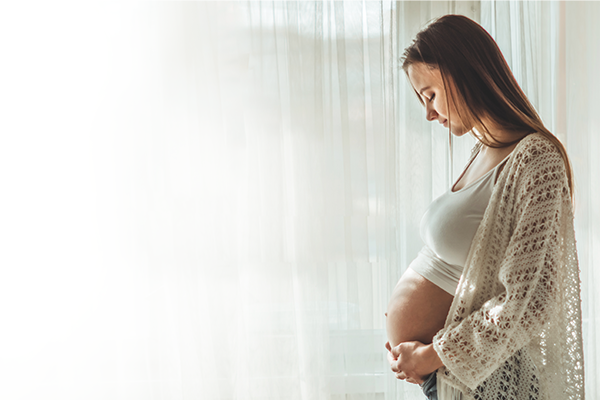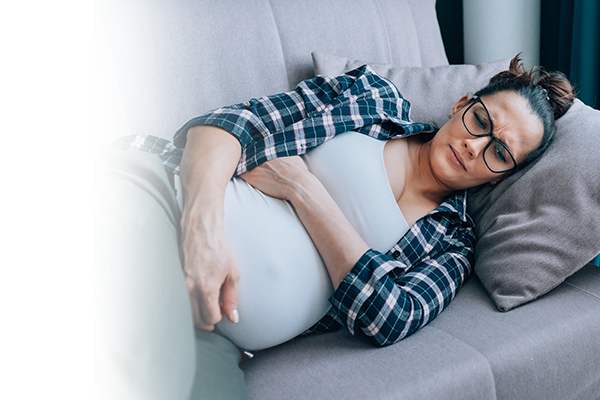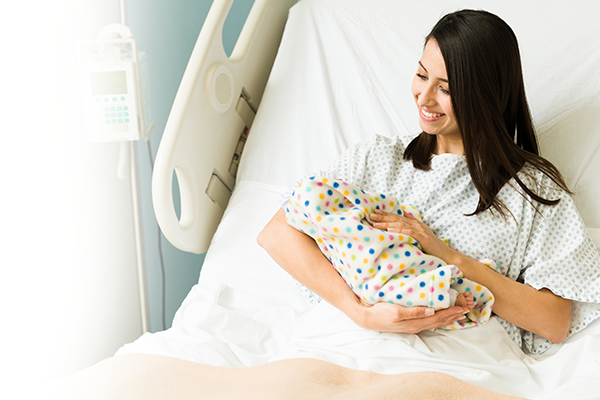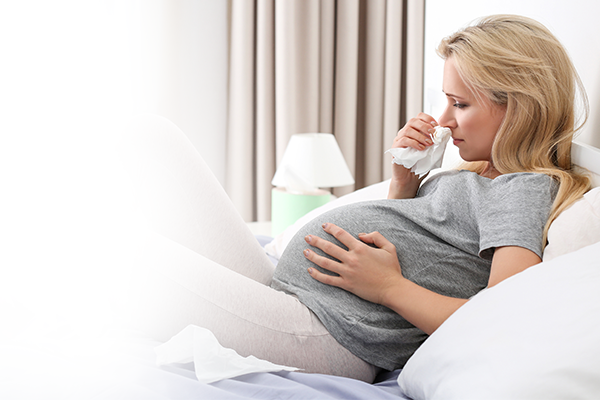Diarrhea in pregnancy, or diarrhea, is an ailment that occurs relatively frequently. Diarrhea at the beginning of pregnancy may be a result of pregnant women's greater susceptibility to gastrointestinal infections. In contrast, diarrhea before childbirth often signals an impending solution. What is the treatment for this condition in moms-to-be? What are the causes of diarrhea in pregnancy? We answer!
Causes of diarrhea in pregnancy
We speak of diarrhea when the number of daily bowel movements reaches 3 or more, and the stools passed have a semi-liquid or liquid consistency. During its course, the main thing to take care of is proper hydration and diet. A pregnant woman should never underestimate such symptoms, as diarrhea can negatively affect the health of the pregnant woman and the baby developing in her womb.
Diarrhea, which lasts up to three weeks, is most often caused by viral, bacterial and parasitic infections. We then speak of acute diarrhea. If, on the other hand, diarrhea persists for more than 3 weeks, it is chronic and may be caused by:
- allergy,
- celiac disease,
- Serious parasitic or bacterial infection,
- food intolerance,
- irritable bowel syndrome.
Regardless of the type of diarrhea, prompt medical consultation is vital, especially for pregnant women. This is because the problem can cause nutritional deficiencies and even malnutrition, which is a danger to the mother-to-be and her baby.
Diarrhea – is it actually a symptom of pregnancy?
Dissolution is not a specific symptom of pregnancy, although it happens so that the action of hormones can cause vomiting and diarrhea. Constipation is much more common in pregnant women, the result of hormonal changes already occurring during the first phase of pregnancy. However, confirmation of pregnancy can be obtained only after a pregnancy test and a visit to a gynecologist’s office.
Diarrhea in pregnancy – 1st trimester
As a rule, diarrhea is a mild condition that requires little intervention. However, if there is also abdominal pain or vaginal bleeding with diarrhea in the first trimester of pregnancy, it may be a sign of miscarriage and immediate medical consultation is necessary . You should also pay close attention to the presence of blood, mucus or pus in the stools. Regardless of the age of pregnancy, it can be a signal of a serious infection, requiring medical intervention.
Diarrhea in pregnancy – 2nd trimester
Diarrhea in the second trimester of pregnancy can be caused by a variety of factors and is an important signal that moms-to-be should pay attention to. Its causes can be hormonal and dietary changes, food intolerances, viruses or bacteria, and stress. In addition, the ailment is often associated with a rapidly growing fetus and the compression of internal organs by the growing uterus.
Diarrhea in pregnancy – 3rd trimester
Diarrhea in the third trimester of pregnancy, in addition to factors such as those in non-pregnant individuals, can be caused by the body’s response to changes in hormonal balance, uterine enlargement and fetal development. In addition, if the diarrhea is accompanied by general weakness, fever or spasmodic abdominal pain, which gradually becomes more and more tender and hard, this may indicate placental detachment.
This problem very often occurs especially in the last month of pregnancy. In this case, we are talking not only about physiological, but also psychological causes of diarrhea. This is because the discomfiture at the end of pregnancy can be caused by increased stress due to the impending delivery date. This ailment before childbirth can also be triggered by the beginning of labor – the body thus cleanses itself and prepares to deliver the baby into the world.
Diarrhea in pregnancy – how to treat it?
The treatment of diarrhea depends on the cause of its onset and is basically no different from that in non-pregnant women. Due to the greater susceptibility of pregnant women to infections resulting from a weakened immune system, it is essential to ensure that they follow a proper diet free of potentially harmful products. If the mother-to-be does not know how to arrange her menu, she can take professional advice from a nutritionist. In the case of diarrhea with a mental background, light physical exercise is also recommended to help relieve tension, thereby regulating the frequency of bowel movements. If, on the other hand, these steps are not sufficient, the doctor may introduce pharmacotherapy with medications that pose no risk to either the mother or her little one.
Diarrhea in pregnancy – which drugs will be safe?
Mothers-to-be should not take any anti-diarrheal medications without first consulting a specialist. A useful remedy mostly is activated charcoal, which will make the symptoms of diarrhea less troublesome. This is due to its mechanism of action – because it facilitates the binding of bacteria and toxins together. For a more severe form of the condition , the doctor may recommend taking Smecta, which is a drug safe for pregnant women and young children.
The importance of hydration – how to prevent dehydration with diarrhea in pregnancy?
The fundamental rule when diarrhea occurs in pregnancy is to stay hydrated. A pregnant woman loses not only large amounts of water during dilation, but also electrolytes. Systematic replenishment of their levels is key to minimize the risk of dehydration. An organism deprived of fluids is far more likely to suffer from kidney disorders, the onset of acidosis or general poisoning of the body. When struggling with diarrhea, pay attention to signals such as:
- A reduction in the amount of urine and its darker color,
- dry mouth,
- feeling of fatigue,
- dizziness.
It is these symptoms that indicate dehydration. In such a situation, the mother-to-be should increase the supply of fluids, and if the symptoms persist – contact a doctor.
Diarrhea in pregnancy – what to eat?
During diarrhea, it is advisable to hydrate regularly and follow an easy-to-digest diet – so exclude all spicy, hard-to-digest and fatty foods, such as, but not limited to:
- Pork and beef sausages,
- fast-food,
- bacon,
- Fried fries, chicken, croquettes;
- butter,
- ready-made sauces,
- cream,
- full-fat cheese,
- whole milk.
It’s also best to avoid coffee, sodas or fruit and vegetable juices. Instead, it is worth reaching for gruel, rusks and corn crisps, and over time you can include cooked carrots, lean meat and potatoes in your diet. Drinking an infusion of berries is also a natural way to stop diarrhea.
Green diarrhea in pregnancy
Fecal coloring depends primarily on the food consumed. Green diarrhea in pregnancy is the result of food content moving too quickly through the digestive system, so that the bile produced during digestion has not had time to change color from greenish to brown.
Read also: Diarrhea at 36 weeks of pregnancy
FAQ:
- What causes of diarrhea in pregnancy do we distinguish?
Diarrhea that occurs for up to 3 weeks is usually associated with a bacterial, viral or parasitic infection. Prolonged diarrhea, on the other hand, is a symptom of a more serious bacterial infection or disease. We then speak of chronic diarrhea, which can indicate food poisoning, food allergies or irritable bowel syndrome.
- How to treat diarrhea in pregnancy?
The main issue is hydration and a change in diet. Fatty, spicy and hard to digest foods should be excluded. If diarrhea persists for more than 3 weeks and is accompanied by other symptoms (such as abdominal pain), it is worth seeing a specialist who will determine the cause of the discomfort and select pharmacotherapy.
- Diarrhea in pregnancy – what helps relieve it?
Activated charcoal is useful in relieving diarrhea, making it easier to bind bacteria and toxins together. It is also recommended to reach for various herbal infusions, such as chamomile or berries.
Rate this article:










